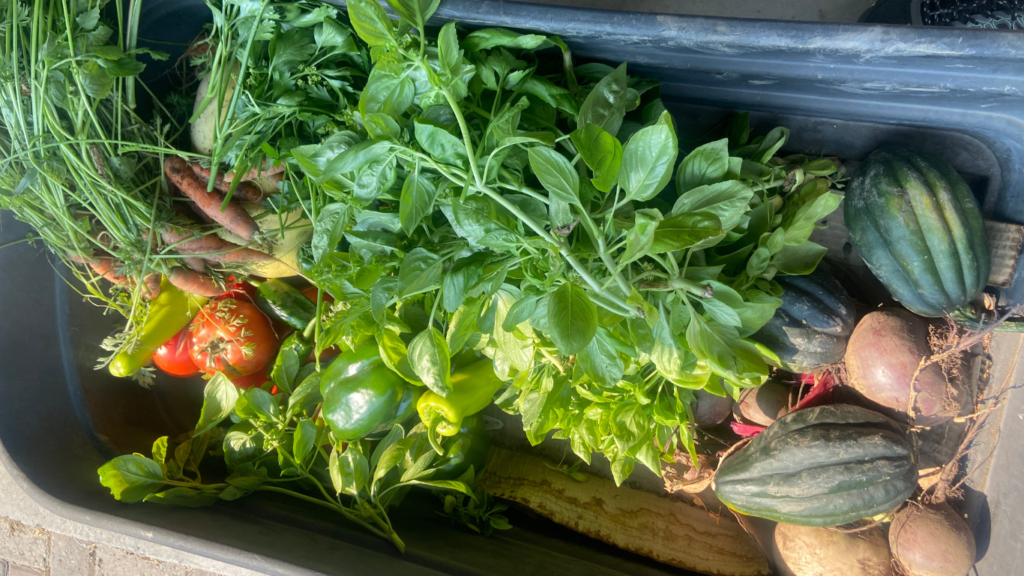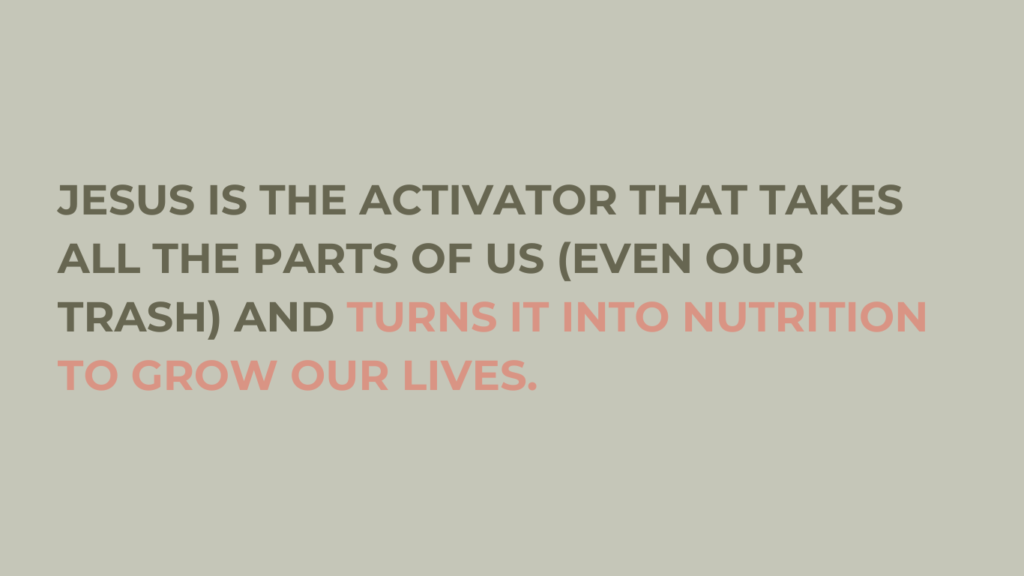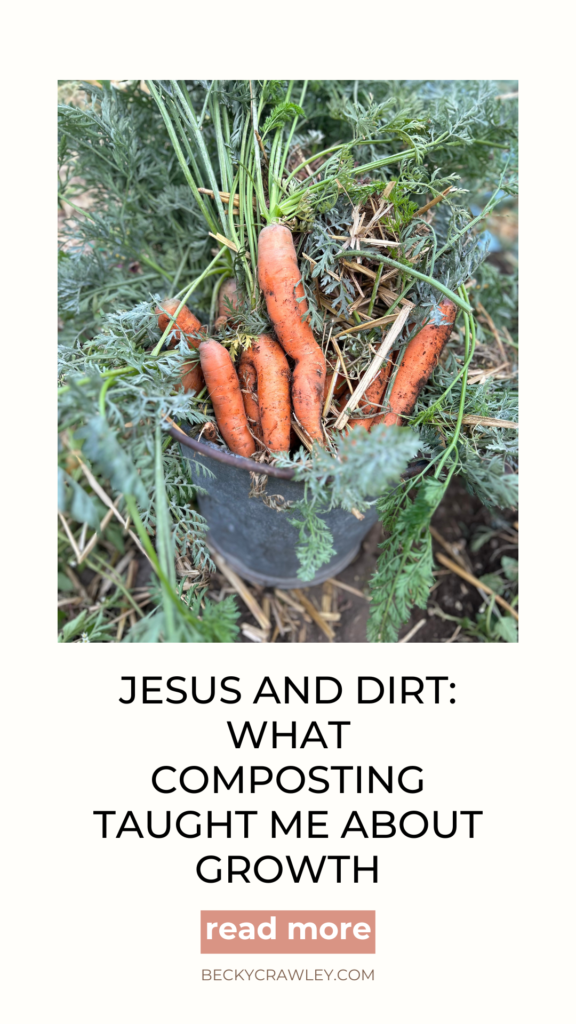You know how they say our food isn’t what it used to be? The nutritional content of fruits, vegetables, and grains just isn’t what it was back in the day. Turns out, the culprit isn’t some grand conspiracy but something much more down-to-earth: dirt. Yep, the soil itself is lacking the mineral and nutrient content it once had, which means our food isn’t as nutritious either. Naturally, my inner garden nerd couldn’t resist a little experiment this spring to see if I could boost the nutrient content of my garden soil. Enter composting—my new favorite obsession.
At its core, good dirt is made from trash. Isn’t that wild? All those kitchen scraps—egg shells, vegetable peelings, cardboard (finally, a way to use up all those Amazon boxes), leaves, grass clippings, sticks—stuff that would normally end up in the trash can or yard waste bin can actually be transformed into gold. Well, soil gold, at least.

But here’s the kicker: composting isn’t as simple as tossing your scraps into a pile and calling it a day. No, it requires daily attention. You’ve got to get out there and mix your compost pile every single day. I’m not going to lie, it’s more strenuous than I anticipated. I mean, who knew that taking a pitchfork to a dense pile of scraps could turn into a mini workout? My arms definitely weren’t prepared for that one!
And like all good things in life, compost needs moisture. Whether that’s from you with a watering can or from Mother Nature with a good spring rain, your compost pile needs a bit of H2O to break down and turn into rich, beautiful soil.
Then there’s the sun. Ever tried composting in winter? It’s like trying to bake a cake with a flashlight. Not impossible, but it takes a lot longer. Some nice sun and heat can really speed up the process, turning your scraps into usable soil in record time.
But oh, the results! Seeing the difference between plants that got our good, healthy compost and those that didn’t was nothing short of incredible. The plants with the compost were vibrant, lush, and practically radiating health. The ones without? Let’s just say they weren’t winning any beauty contests.
Now, all this talk about dirt and compost naturally got me thinking about the Bible. It’s kind of amazing how much Jesus had to say about soil, growth, and fruitfulness. In Luke 8:15, He tells us, “As for that in the good soil, they are those who, hearing the word, hold it fast in an honest and good heart, and bear fruit with patience.” The right soil makes all the difference, both in our gardens and in our hearts.
Genesis 3:17-19 paints a picture of how the ground was cursed because of Adam’s sin, making it tough to cultivate. Ever felt like your life is full of thorns and thistles? Me too. But Jesus shows us that good soil—soil that’s been properly nurtured and cared for—yields an incredible harvest. Just like with my compost, it takes some effort, but the results are worth it.
Matthew 13:3-9 talks about a sower scattering seeds. Some fall on rocky ground, some among thorns, but only the seeds that fall on good soil take root and produce a bountiful harvest. Jesus wasn’t just giving gardening tips—He was showing us that the condition of our hearts matters. Just like composting requires daily attention, so does our spiritual life. We need to be intentional about nurturing our hearts with the right things—prayer, Scripture, and time with Jesus.
John 15:5 reminds us that Jesus is the vine and we are the branches. If we remain in Him, we’ll bear much fruit. Apart from Him, though? We’re just like those dry, lifeless plants that didn’t get any compost. Without Jesus, our lives don’t have the nutrients we need to grow and thrive.
So what did composting teach me about growth? First, that growth often comes from unexpected places—like turning trash into treasure. Second, that growth requires daily effort, a willingness to get our hands dirty, and the humility to admit we can’t do it alone. And finally, that when we’re intentional about the condition of our “soil,” the harvest can be more abundant than we ever imagined.
In the same way that composting is a process that takes time, patience, and a bit of muscle, so is our spiritual growth. It’s not always easy, and there are days when we’d rather skip the work and just toss our scraps into the trash. But when we commit to the process, when we mix in prayer, Scripture, and a little bit of sweat, we’re rewarded with a life that’s rich, fruitful, and full of the nutrients we need to thrive.
So, next time you’re out in the garden or tossing those kitchen scraps into the compost bin, take a moment to think about the soil of your heart. What are you nurturing it with? Are you giving it the daily attention it needs? And most importantly, are you letting Jesus be the master gardener, guiding you through the process of growth?
Because just like in the garden, the results in our lives can be nothing short of miraculous when we let Jesus take the lead.



